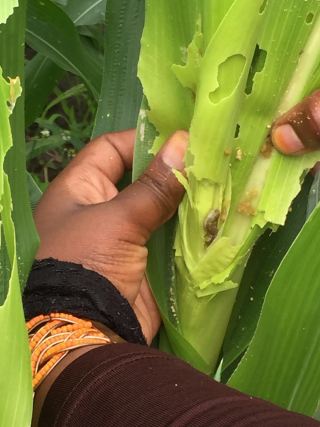6 Most Common Signs of a Rodent Infestation
Getting rid of rodents is not always easy which is why you need the right team to help you get rid of the problem once and for all.
Cape Town, February 5, 2019 – Rodent infestation goes way back and despite man’s best efforts these tiny animals have been known to cause havoc. The Pest Managers Cape Town owner, Mr. Adriaan Jordaan, notes that their damage can be enormous and that the key to their destruction is early identification and elimination. His company which based in South Africa will help you get rid of these rodents and other pests in your home
“With constant changes in weather, you are likely to find unwanted guests at your place of residence” notes Mr. Jordaan, “this can include insects, small animals and even the disease laden rodents. “We all do our best to keep them out of our homes and workplaces, but despite our very best efforts they may still find their way in.” Here are 6 ways you can tell that you have unwanted guests in your home according to the owner of Pest managers Cape Town:
1. You will hear sounds and noises mostly in the dark
Rodents are pesky little things dashing in and out of places while scavenging for food. They are quite smart too as they prefer the cover of darkness when roaming. However, they don’t always move silently as you will hear noises in empty rooms and if they are close enough, you may hear them chewing through walls and other things.
2. Chew marks
Rodents are known to chew into anything from metal, wood, plastic, fabric and other materials. If you find chewed into clothes or wires, one or more rodents may be in your home.
3. You may see one
With time, rats and other rodents get so bold that they start running around the house in bold daylight. When you make a sighting of them in your home, then you can be sure that they aren’t living too far away.
4. You will see their dropping in the house
If rodents are living in your premise, you are likely to find their dropping in cabinets, drawers and even the darkest corners. These small, almost round droppings may have an earthy or dark color. The droppings may be highly infectious depending on the rodent’s health condition and so, never handle the droppings directly to avoid contamination
5. Fur marks
Rodents are known to have a greasy fur and when they move around the house, they may leave oily and dirty evidence for you to find. You may also find far shedding in case you stumble on an area where they have made their nest.
6. Foul smell
Since rats multiply quite fast, it’s not unlikely that some of them may end up dying somewhere inside the house; this can be in the ceiling, drawers or even inside a couch where they may have drilled a hole. The decomposing rat will give off a bad smell and unless you find it and remove it, the smell will remain there for quite a while.
In conclusion, Mr. Jordaan states that you shouldn’t stress out when you get rodent trouble; call their experts in Cape Town on 087 551 0538. He notes that they will help you get rid of the rodents and any other pests in your residence using modern and highly effective techniques. Their company is also known for staff that are highly experienced and for affordable services.
You can reach out to them at https://www.pest-control.capetown
Media Contacts:
Owner: Adriaan Jordaan
Address: 5 Murray Street, Kuilsriver, Cape Town, 7580, South Africa
Tel: 087 551 0538
Track African Fall Armyworm with Russell IPM’s optimised Pheromone Lure
UK-based biorational pest control solutions provider Russell IPM has developed and tested an effective monitoring system against fall armyworm (FAW). FAW, Spodoptera frugiperda, is a fast-spreading pest that has been damaging essential food crops in South Africa, Zimbabwe, Zambia and Malawi.
Russell IPM has responded to the demand for an effective monitoring system for FAW infestations. In February, trials were conducted in Africa in order to optimise the company’s pheromone blend targeting the devastating pest. Six different formulations of the FAW pheromone were tested in Zambia and South Africa. According to Dr Al-Zaidi, Russell IPM’s Managing Director, an effective monitoring solution has been identified.
“The trial results show that the highest trap catches were achieved by Russell IPM’s four-components lure. This formulation, which is specific to the fall armyworm species currently present in Africa, showed the highest efficacy. The lure and traps are commercially available from our distributors in Africa”.
The lure is compatible with Russell’s Mothcatcher trap, and can be used as part of an IPM strategy to combat the invasions in Africa. Dr Nayem Hassan, Head of Research and Development at Russell IPM, recommends the following programme of treatment: “For preventative FAW control, our microbial plant booster and soil enhancer, Recharge, can be mixed with the irrigation water and applied to the soil around the plant roots. FAW pupae will not emerge from the soil.
For tackling larvae at first detection and before they bore into the stem of the host plant, farmers can alternate foliar applications of Biotrine, a microbial extract, and Antario, a synergised Bacillus thuringiensis formulation. Biotrine’s action is translaminar, so the active ingredient is absorbed only into the upper foliar surface. It targets larvae coming into contact with treated leaves, but the plant itself will show no pesticide residue.” Headquartered in Flintshire, United Kingdom, Russell IPM designs, manufactures, supplies and consults on innovative biorational solutions for pest monitoring and control in agriculture and public health.


